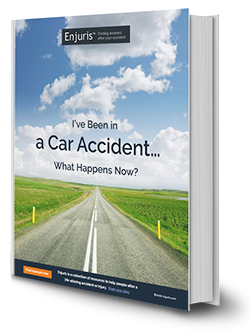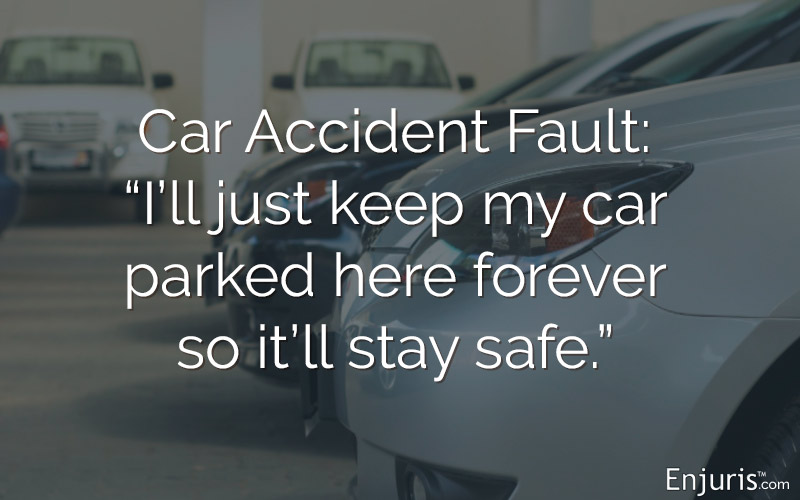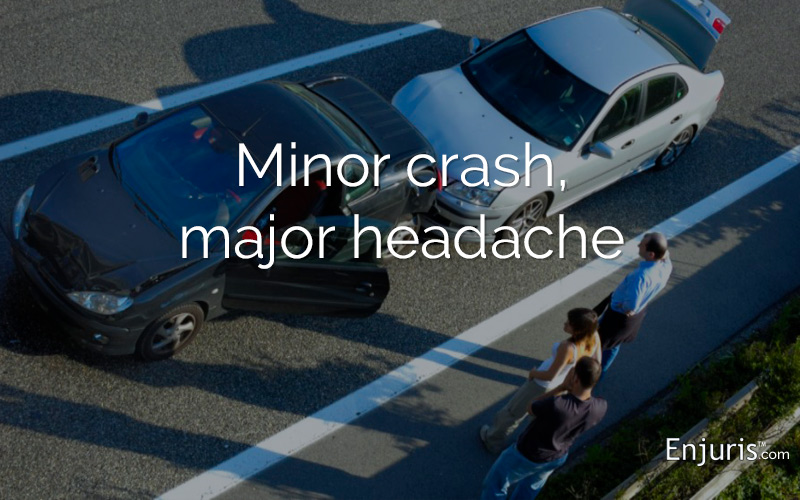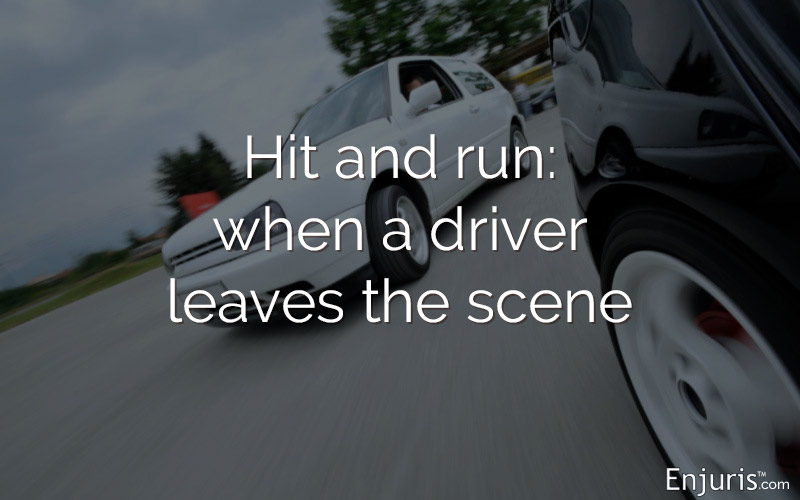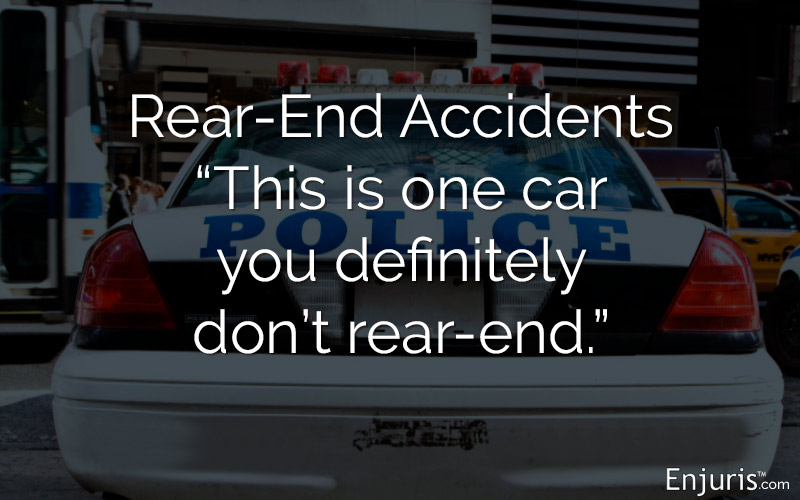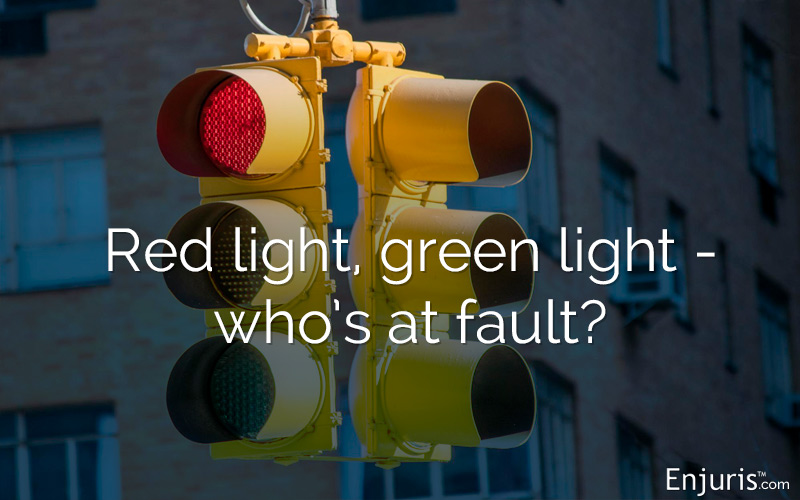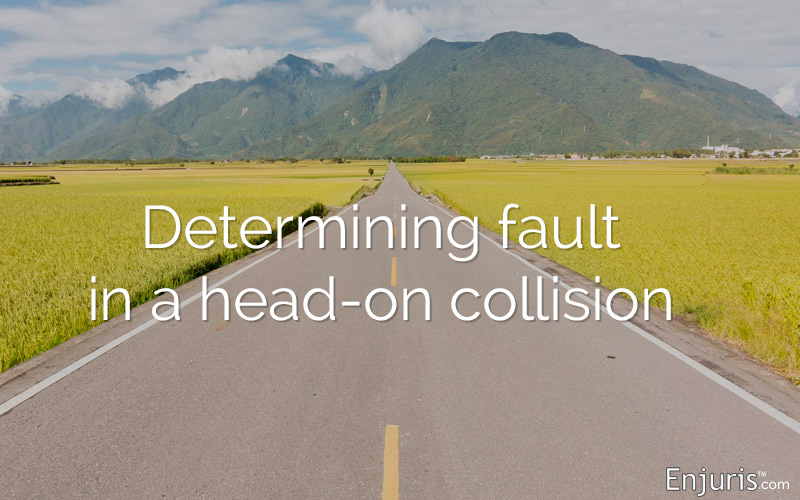How Nevada laws can affect your car accident financial outcome
A car accident can be devastating — or a minor inconvenience. Either way, how you recover damages is based on the Nevada fault system and insurance laws. Here’s everything you need to know about handling a Nevada car accident.
What happens in Vegas stays in Vegas, right?
Well, yeah. Sure. But Nevada is much more than just the glittering lights of the Strip. If you’re a tourist heading to Nevada, you might be interested in checking out the Hoover Dam, Valley of Fire State Park, or Lake Tahoe. Or, perhaps you want to visit gold and silver mines or to have a spontaneous wedding. There’s also Area 51 for UFO enthusiasts or the Burning Man festival for adventure seekers.
But maybe all of those places are right in your backyard—perhaps you moved to Nevada for the great weather and low humidity, outdoor activities, entertainment, or no state income tax.
Regardless of why you’re in the Silver State, you’re there. And it’s important to know the basics of its car accident laws and lawsuits if you’re going to be traveling (or even just visiting one place). You never know when an accident can happen, and being prepared and knowledgeable can only help your case.
Nevada is an at-fault car insurance state
Each state is either a fault state or a no-fault state. In an at-fault state, the person who caused the accident pays for an injured person’s related costs.
Therefore, the first and arguably most important part of sorting out an accident and damage assessment is determining who was at fault—or who was liable for the crash. Sometimes, there’s more than one person who shares fault.
Nevada modified comparative fault rule
Nevada follows a modified comparative fault rule (sometimes called the 51% Rule). Any person who seeks to collect damages must be less than 51% at fault or they cannot receive any damages.
Nevada car accident laws
Nevada law imposes five duties on a driver who is involved in any type of collision:
- Stop. You’re required to exchange contact information and insurance information with any other parties involved in the crash. Failure to do so could result in criminal hit and run charges.
A hit and run is a misdemeanor if the accident is property damage-only. Penalties are up to six months in jail and/or a fine of up to $1,000 in fines, along with six Nevada demerit points on your driver’s license.
If someone is injured or dies in the crash, a hit and run is a category B felony. This could mean penalties of 2-20 years in prison and fines of $2,000-$5,000. You could also have your license revoked. - Move your vehicle out of traffic. If it’s safe to do so, you’re required to move your car to the side of the road or out of traffic, while remaining close to the scene of the crash.
- Provide help to any other person requiring medical attention, including calling 911 if necessary.
- If a person has been injured, you must notify police. If there are no injuries that require emergency attention and if it appears that there is less than $750 of property damage, the police will not come to the scene.
- If the accident is serious, you must report it to the DMV within 10 days unless the police are doing so on your behalf. This is required if any person was injured or killed or if there is $750 or more in damage to property.
Nevada law makes it a gross misdemeanor to knowingly provide false information in a crash report. Penalties include up to 364 days in jail and up to $2,000 in fines.
Nevada car accident statute of limitations
A Nevada personal injury lawsuit—which includes car accidents—must be filed within two years of the date of the accident. If you don’t file a lawsuit within that time, the court can refuse to hear your case.
Note that this is different from the deadline in which to file an insurance claim. The insurance company sets its own deadlines and they are usually much shorter than two years. If you’re involved in a Nevada car accident, you should call your insurance company right away to report the crash.
What type of damages can you recover from a Nevada car accident?
There are two types of damages in a personal injury lawsuit: economic and non-economic. Both of these are considered “compensatory damages”.
Economic damages are costs that have a specific financial value, including:
- Medical treatment, including doctor or hospital visits, surgery, prescription medication, diagnostics like X-ray or MRI, etc.;
- Assistive devices if the accident requires you to use a wheelchair or other external assistance;
- Ongoing therapies, like physical and occupational; and
- Lost wages, present and future, if the injuries prevent you from returning to work.
Each of these damages can be quantified and measured based on your medical bills and employment records.
Non-economic damages are costs associated with injuries that are not simple to quantify. Pain and suffering, mental anguish or PTSD, loss of consortium, loss of enjoyment of activities, and other issues matter deeply to the person they affect, but it’s harder to assign them a financial value.
When to call a Nevada personal injury lawyer
If you’ve been involved in a Nevada auto accident, it could be worthwhile to seek the guidance of an experienced, qualified, compassionate personal injury lawyer.
Whether you were the at-fault driver or not, lawyers aren’t just for lawsuits. They negotiate insurance settlements, too.
Why is this important?
Your insurance adjuster is not on your side—even though it might seem like they are. Remember this: Yes, you are their customer if it’s your own insurance policy. But the customer isn’t always right. The insurance company makes a profit when it pays out less in settlements than it earns from premiums. The insurance adjuster’s job is to get you to accept the smallest payout possible to close your file. They’re not trying to help you, they’re trying to save their employer money.
Your lawyer only earns money if you do. Most personal injury lawyers work on a contingency basis, which means they earn a percentage of your insurance payout or damage award. The more you receive, the more they earn. Their incentive is to get you the most money possible.
Your lawyer can help you minimize your amount of fault in a crash, ensure you’re getting enough of a settlement to cover your costs, and analyze your future needs to cover those, as well.
Still not finding what you need?
Check out our other articles on motor vehicle accidents in Nevada.
Did you know that car accident law varies by state?
Hurt in a car crash? You may find these resources helpful
Need a lawyer?
What does an injury lawyer do?
A personal injury lawyer helps individuals who have sustained injuries in accidents to recover financial compensation. These funds are often needed to pay for medical treatment, make up for lost wages and provide compensation for injuries suffered. Sometimes a case that seems simple at first may become more complicated. In these cases, consider hiring an experienced personal injury lawyer. Read more
Common car accidents
